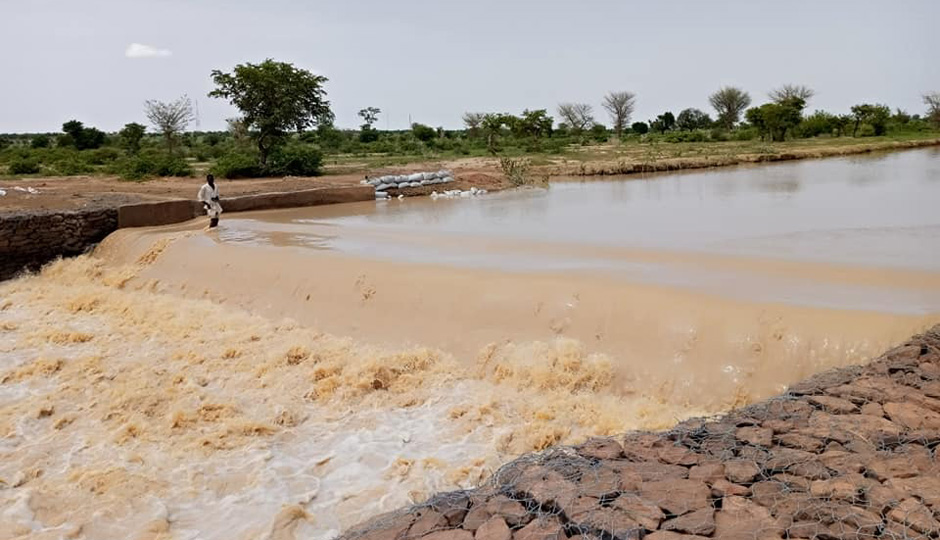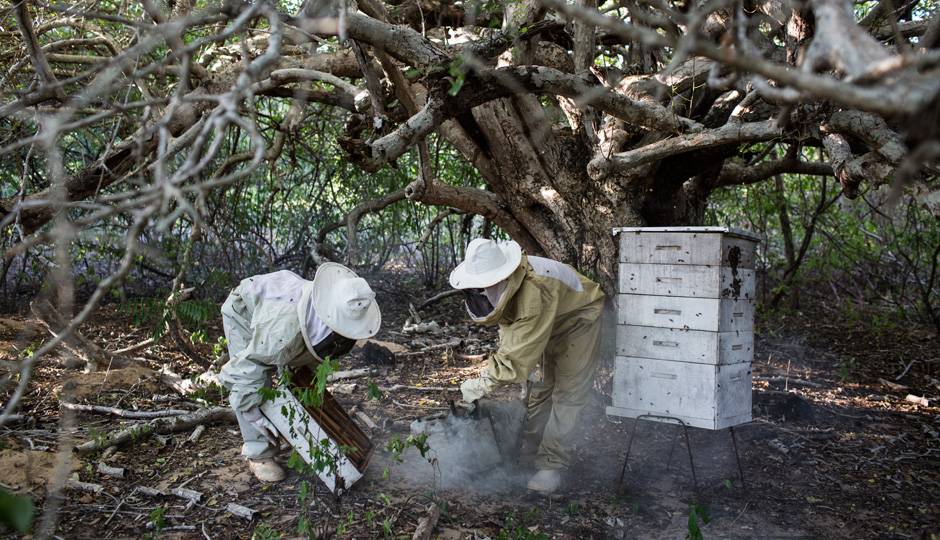How agroecology can respond to a changing climate and benefit farmers
IFAD Asset Request Portlet
Publicador de contenidos
Cómo la agroecología puede responder a un clima cambiante y beneficiar a los agricultores
Tiempo estimado de lectura: 3 minutos
Este texto estará pronto disponible en español
Current food systems are at a crossroads. There is a strong need for transforming food production and consumption patterns in a sustainable way. One where farmers adapt and build resilience to the increasing challenges from climate change and where nutritious food is available for all. Agroecology provides one solution towards this transformation.
Agroecology has been around since the 1920s when scientists used the term to refer to the application of ecological principles to agriculture, where diversity, recycling and effective use of resources in farming systems is central. It has evolved over the years to become a holistic approach to agriculture, integrating science with economic, social and ecological systems. Agroecology has become high on the global agenda for the Sustainable Development Goals. The approach has a potential strong contribution to farming system resilience against climate change impacts, to the conservation of biodiversity, and to reversing land degradation trends.
Farmers’ traditional knowledge combined with innovation in practices and the sustainable use of technologies is at the core of an agroecological farming system. Cultivation practices maintain high crop production and livestock diversity integrated in a farming ecosystem that facilitates recycling of biomass, nutrients, water and energy. As such, these practices create resilience by spreading risks and improving the water and nutrient buffer capacity in the system.

In Niger, an IFAD-supported project uses an agroecology-based approach to strengthen sustainability in family farming and improve access to markets. Project activities range from agroforestry to land and water management. Degraded lands are recovered through Assisted Natural Regeneration that allows water infiltration and increases soil carbon sequestration. The circulation of biomass and nutrients within the crop-livestock integrated system using manure and compost also improves soil fertility. Smallholders, especially women and young people, receive training in different agroecological practices, such as integrated pest management, agroforestry and animal health, using the Farmer Field Schools approach.
Agroecology empowers smallholders, including women, young farmers and indigenous peoples. Farmers are considered as more than just producers: their engagement in creating knowledge, innovations and adaptations, and their cultural and social values are intrinsically linked to the type of food they produce. Farmers are less dependent on seasonal external inputs and youth are more motivated to engage with these innovative approaches. Producers and consumers are more connected.

In the semi-arid region of Bahia, Brazil, an IFAD-supported project works with family farmers and the quilombola and fundo de pasto communities to reduce rural poverty by improving income, increasing production and creating jobs. The success of the project is down to investments in agroecological practices that can deal with the semi-arid conditions. Communities diversify their farming systems by applying agroecological approaches in soil fertility management, water management and soil erosion control. These practices use resources more efficiently, allowing nutrients and biomass to circulate within the system, and are less dependent on seasonal external inputs. Recovery of forest cover and the structure and health of the soil allows more water to be available and stored.
Importantly, agroecology has the potential to contribute to farmers’ income generation and stability by reducing losses to climate shocks and reducing inputs costs. What is more, agroecological backyard gardens in which horticulture is integrated with vegetables and fruits production ensure the availability of nutritious food. Selling these produce directly through local markets benefit both producers and consumers and creates a fair rural economic model contributing to human health.
Fecha de publicación: 18 diciembre 2019